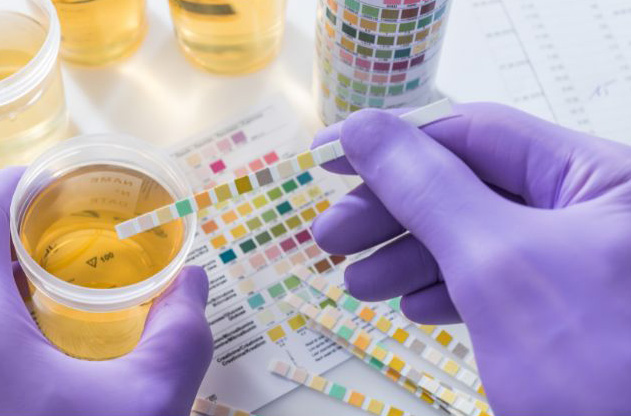
Prostate cancer (PCa) is the most common cancer among males in the Western world, with its prevalence increasing due to improved survival rates. This growing number of patients requiring follow-up places significant pressure on healthcare systems, which are unlikely to see a proportional increase in resources. The ongoing COVID-19 health issue has further accelerated a paradigm shift towards telehealth solutions, primarily to limit physical contact and conserve resources. Fortunately, innovations in prostate cancer screening and telehealth are making care more accessible, accurate, and cost-effective than ever before.
Mobile PSA: Streamlining Prostate Cancer Follow-Up
One significant advancement is “Mobile PSA,” a novel telehealth tool designed for prostate cancer follow-up after radical prostatectomy (RP) or radiation therapy (RT). Please note that Mobile PSA is not a service we offer; this information is provided for educational or informational purposes only. This system, which does not require an app, has been utilized by over 4,500 PCa patients in one center alone, with the first results sent via the system as early as November 2011.
How Mobile PSA Works:
- Once a patient has recovered uneventfully, has no need for further treatment, and pathology shows no rare non-PSA-producing variant, they can opt for remote follow-up via Mobile PSA.
- Customized parameters are set, including the interval for PSA measurements and the specific PSA alarm level (absolute concentration, elevation above nadir for RT, or doubling time).
- The system then automatically sends SMS reminders to the patient for routine PSA tests.
- After a blood sample is analyzed, the standardized laboratory computer system automatically interprets the PSA result against the preset alarm level.
- The numerical result, along with a clear statement of whether the result is normal or has triggered an alarm, is sent to the patient via SMS in an easily understandable format. This communication method is simple, works on all mobile phones, and requires no login or special software.
- If the PSA result exceeds the trigger level, an alarm message is also sent to a PCa nurse, who then contacts the patient to discuss the matter, arrange a confirmatory PSA check, and schedule a face-to-face consultation with a urologist.

Benefits of Mobile PSA:
- Increased Accuracy: All biochemical relapses are detected in a timely manner, and its accuracy for determining biochemical recurrence is likely superior to follow-up conducted by general practitioners, ensuring the window for curative salvage treatment is not missed.
- Reduced Delays: The median time from when a sample is drawn to when the result is sent to the patient via SMS is remarkably fast, at 4.9 hours, with 92.9% of patients receiving their results within 8 hours. This rapid response may also help decrease patient anxiety.
- Significant Cost Savings: Mobile PSA can lead to substantial cost reductions, saving between $ 1,404 and $ 3,441 per patient over a typical 10-year follow-up period, representing an 87–94% reduction in patient contact costs.
Empowering Informed Decisions for Prostate Cancer Screening
Beyond follow-up, the integration of prostate cancer screening and telehealth is revolutionizing patient care by enhancing informed decision-making, particularly for high-risk populations. A study focused on Black men aged 45-79 years with no history of prostate cancer and no prior PSA testing demonstrated the utility of Navigation-Based Telehealth for informed decision-making regarding prostate cancer screening (PCS).
In this program, patients from Pennsylvania participated in telehealth-delivered sessions guided by trained Navigators. The content of these sessions was developed using focus groups, social learning theory, visual diagrams, and quantitative data on PCS risks and benefits, including numerical discussions tailored for Black men.
Key Findings:
- Despite participants having a low mean numeracy score (1.9 out of 6), over 90% rated the sessions as good or excellent in aiding their PCS decision-making skills.
- This indicates that Navigation by telehealth offers the ability to assist in informed decision-making for PCS at the population level, bringing crucial information to high-risk individuals.
The Future of Testing: At-Home Urine Tests

Another exciting development in prostate cancer screening and telehealth is the advancement of noninvasive at-home testing. While this should never replace your in person healthcare visits, researchers have shown that a simple at-home urine test for prostate cancer screening, called MyProstateScore 2.0 (MPS2), is highly accurate. Please note that MyProstateScore 2.0 (MPS2) is not a service we offer; this information is provided for educational or informational purposes only. This test analyzes 18 genes associated with prostate cancer to identify high-grade cancers that require early detection and treatment.
Crucially, while an earlier version of the test required urine collected after a digital rectal exam (DRE), a new study revalidated MPS2 in urine obtained without the exam, maintaining very similar accuracy.
Benefits of At-Home MPS2 Urine Test:
- Increased Access: This innovation enables at-home testing and significantly increases access to screening for patients undergoing telehealth care or living in remote areas. No more “no fun” rectal exams for initial screening.
- Reduced Unnecessary Biopsies: For men with elevated PSA, this noninvasive urine test could help avoid 34%-53% of unnecessary biopsies.
- High Accuracy: It is highly accurate for ruling out clinically significant prostate cancers—those that require treatment—allowing patients with a negative result to confidently avoid an MRI or biopsy.
The potential future use of MPS2 in patients undergoing active surveillance for low-grade prostate cancer could further eliminate or reduce the need for prostate biopsies in that setting, allowing for reliable noninvasive monitoring.
The Telehealth Advantage in Prostate Cancer Care

Innovations in prostate cancer screening and telehealth, from streamlined follow-up with Mobile PSA to empowered decision-making through navigation, and the advent of highly accurate at-home urine tests, are fundamentally transforming patient care. These innovations collectively promise more efficient, accessible, accurate, and patient-centered care, addressing the growing demands on healthcare systems and improving outcomes for individuals at every stage of their prostate cancer journey.
Understanding your risk for prostate cancer starts with a conversation. Schedule your telehealth consultation with our team to get personalized guidance from the comfort of your home.
Discover new ways to get care with our articles on telehealth:


